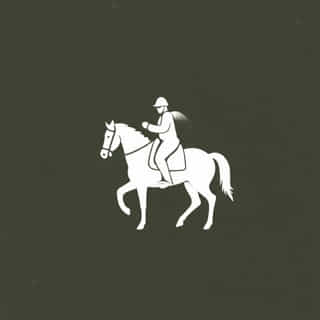The term ‘cavalryman’ brings to mind images of mounted soldiers galloping into battle, flags waving and sabers drawn. Traditionally associated with horse-mounted military units, the word has evolved in modern language to encompass various meanings depending on context. In historical, military, and even metaphorical usage, several alternative words and expressions are used to describe a cavalryman. Understanding these synonyms not only broadens vocabulary but also offers a deeper appreciation for the roles and representations of mounted warriors throughout history. Whether in literature, military history, or casual conversation, knowing other words for cavalryman can be both informative and enriching.
Common Synonyms for Cavalryman
There are several commonly used synonyms for cavalryman that have been adopted over time. These alternatives may differ slightly in meaning based on region or military tradition but generally refer to a similar type of soldier.
- Horseman– A broad term for anyone skilled at riding horses, often used in a military context to refer to cavalry soldiers.
- Trooper– This term is widely used in military settings, especially in American and British forces, to denote a cavalry soldier.
- Dragoon– Originally used to describe soldiers who rode horses but fought on foot, later associated with mounted troops in general.
- Lancer– Refers specifically to a cavalryman armed with a lance, often part of elite or ceremonial regiments.
- Rider– A general term that can describe a cavalryman or any individual who rides a horse, often used poetically or in fantasy settings.
Historical and Specialized Terms
Over centuries, different cultures and military systems have developed unique terms to describe their cavalry units. These words provide insight into the roles and distinctions of mounted troops across time and geography.
Historical Equivalents
- Hussar– Originating from Hungary, hussars were light cavalry known for their speed and flamboyant uniforms. The term has been adopted by many European armies.
- Chevalier– A French word meaning ‘knight,’ it is often used to describe noble horsemen in the medieval and early modern periods.
- Charger– Though not a title for the person, charger refers to the powerful horse used by cavalrymen, often extending metaphorically to the rider.
- Cuirassier– Heavy cavalry soldiers armored with cuirasses (breastplates), especially popular in 17th to 19th century Europe.
Non-English Terms with Equivalent Meaning
- Caballero– Spanish for ‘gentleman’ or ‘horseman,’ used both in military and civilian contexts.
- Reiter– A German term for mounted soldiers, particularly during the Renaissance and early modern era.
- Uhlan– A Polish term for light cavalry lancers, widely recognized in various European military traditions.
Modern Interpretations and Figurative Language
In contemporary speech and literature, cavalryman-related words have taken on metaphorical and expanded meanings. Writers and speakers may use these terms figuratively to suggest bravery, speed, or coming to someone’s aid.
Modern Military and Law Enforcement Terms
- Mounted police– Officers who patrol on horseback, sometimes seen as the modern civilian equivalent of cavalrymen.
- Recon scout– In modern mechanized warfare, the function of traditional cavalry units is now often performed by reconnaissance scouts in vehicles.
Metaphorical Uses
- White knight– A person who comes to rescue or save someone in distress, often used in romantic or corporate settings.
- Gallant– Describes someone brave or chivalrous, especially in defense of others, echoing the spirit of a traditional cavalryman.
- Savior on horseback– A poetic expression referring to a person who comes to rescue others, much like a cavalry charge to save the day.
Contextual Differences Between Synonyms
While many of these synonyms are interchangeable, their meanings can shift based on context. Some words imply certain eras, national traditions, or military roles that distinguish them from others.
Choosing the Right Term
When deciding which term to use instead of cavalryman, it’s important to consider:
- Time period– Knight or chevalier suits medieval contexts, while dragoon or hussar fits 17th to 19th-century settings.
- Military role– Light cavalry like hussars and lancers differ from heavy cavalry like cuirassiers.
- Cultural origin– Uhlan or reiter has cultural specificity tied to Eastern and Central Europe.
Examples in Use
Here are some examples that demonstrate how these terms can replace or accompany ‘cavalryman’:
- Thehussarled the charge across the open field with unmatched speed.
- Mountedtrooperssecured the perimeter before infantry advanced.
- Thedragoondismounted swiftly and engaged the enemy on foot.
- In the old tales, aknightwas both a nobleman and a seasoned cavalryman.
Cavalryman in Literature and Popular Culture
Writers often turn to synonyms and alternatives for cavalryman to add variety and depth to narratives. Whether in historical fiction, fantasy novels, or epic poetry, these terms bring nuance and cultural texture to storytelling.
Literary Usage
- In epic poems, the termridermay suggest a lone warrior with noble purpose.
- Fantasy stories often favorhorsemanorknightto evoke a romantic or medieval tone.
- Military dramas use terms liketrooperordragoonto maintain historical accuracy.
Why Expanding Vocabulary Matters
Having a variety of words for cavalryman enriches communication and deepens one’s understanding of military history and language. Whether you’re writing fiction, studying history, or simply improving your vocabulary, knowing these synonyms can help you express ideas with greater precision and style.
Advantages of Using Synonyms
- Improves writing fluency and prevents repetition
- Enhances historical and cultural awareness
- Provides clarity based on context and tone
while ‘cavalryman’ remains a powerful and evocative term, numerous other words can be used to describe this role with equal accuracy and color. From horseman and trooper to hussar and dragoon, each alternative brings its own history and character. Understanding and applying these words can elevate your communication, whether in writing, teaching, or conversation.
